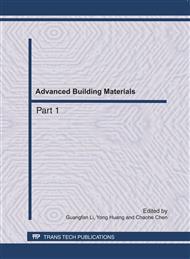p.2959
p.2965
p.2970
p.2975
p.2979
p.2984
p.2993
p.2998
p.3002
Analysis on the Flow Process of Hot Oil in the Organic Heat Transfer Material Heater Based on Finite Time Thermodynamics
Abstract:
Analyses the flow process of hot oil in the organic heat transfer material heater based on finite time thermodynamics for the first time, obtains the entropy production rate which includes entropy production rate of dissipation effect and entropy production rate of potential difference, analyses the influence of flow pattern, physical parameters, structure and operation of the organic heat transfer material heater on the entropy production rate of dissipation effect, illustrates the influence of related parameters including Renold number, velocity, viscosity and pipe diameter on the entropy production rate of dissipation effect, and points out the type of hot oil must be considered to decrease the entropy production rate of dissipation effect and the velocity must be control under the premise of avoiding overheat.
Info:
Periodical:
Pages:
2979-2983
Citation:
Online since:
May 2011
Authors:
Price:
Сopyright:
© 2011 Trans Tech Publications Ltd. All Rights Reserved
Share:
Citation:


